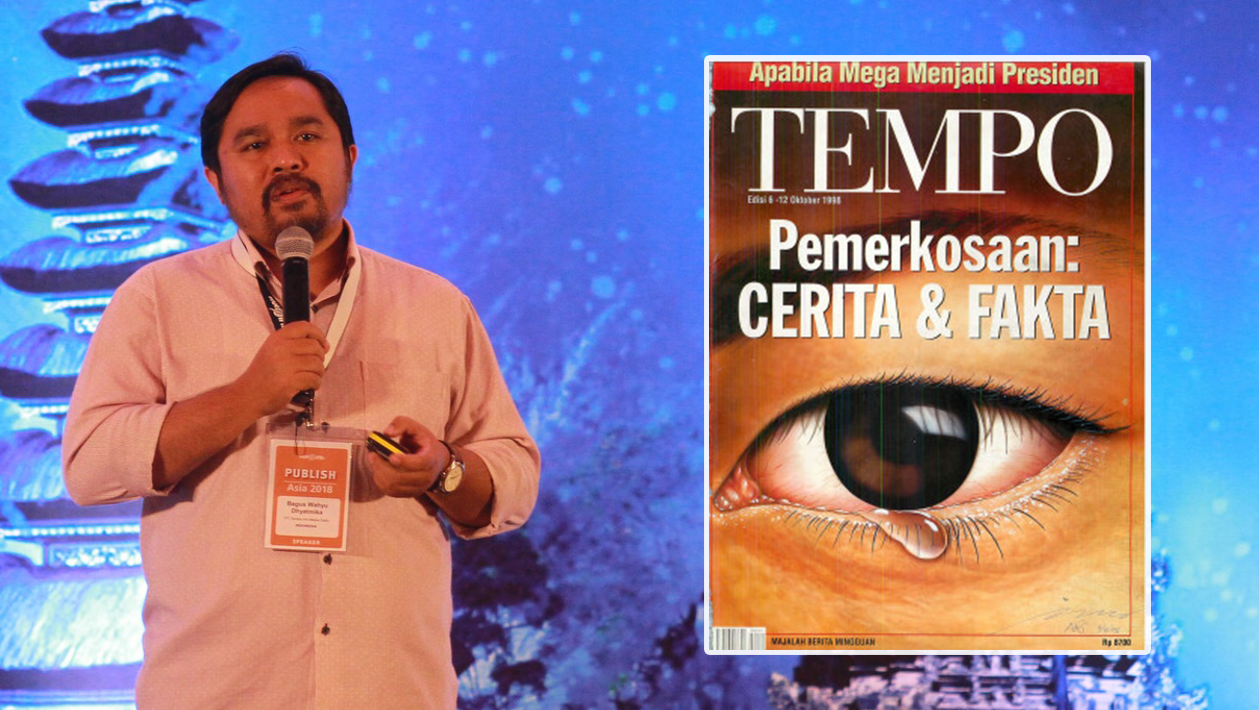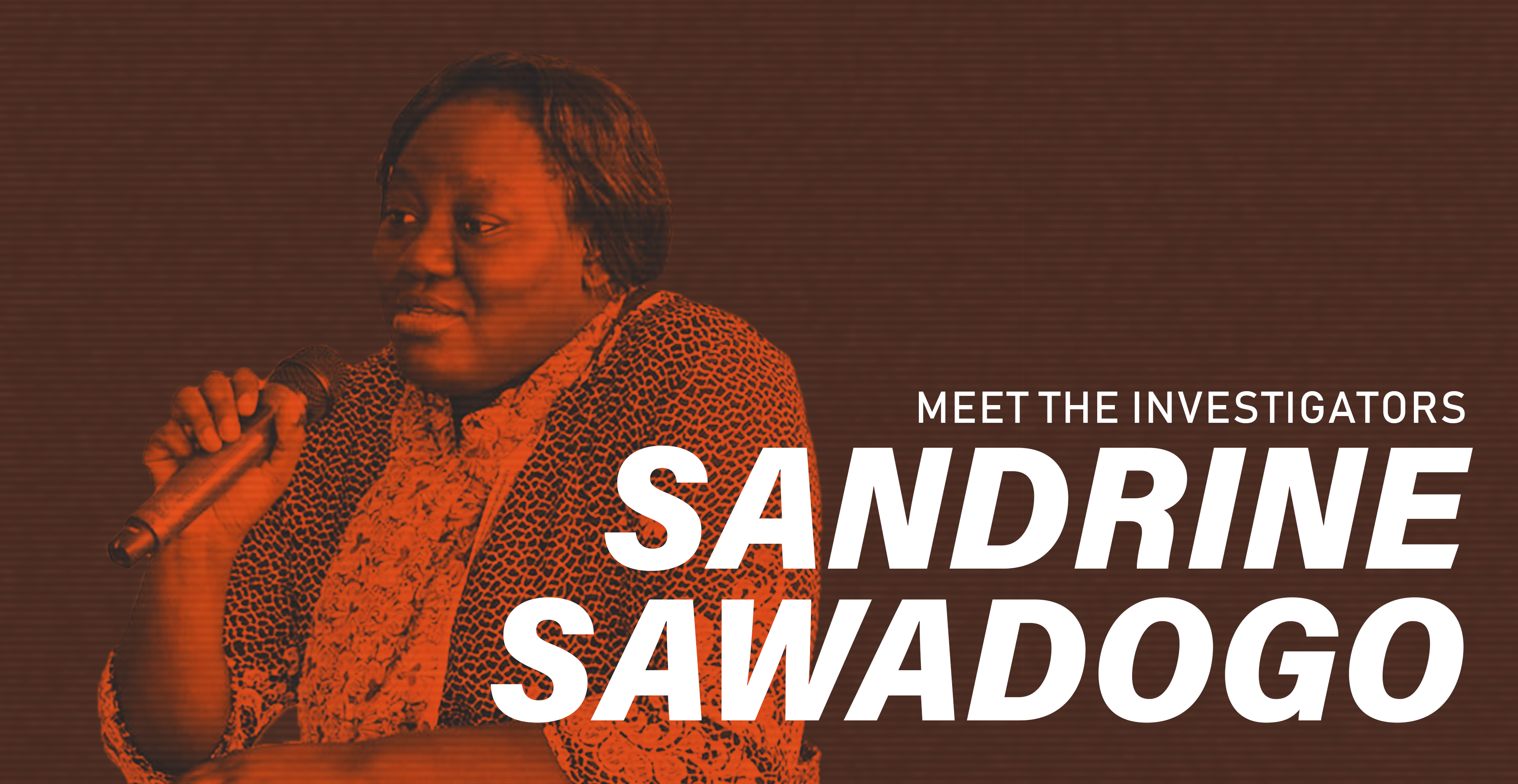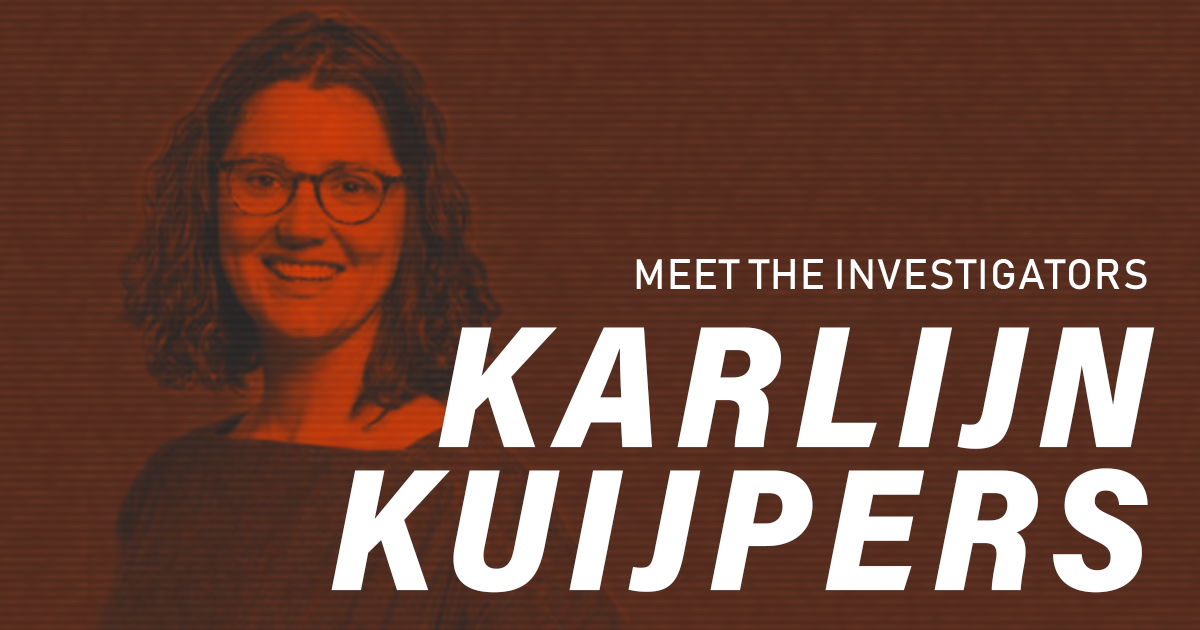The International Consortium of Investigative Journalists has hundreds of members across the world. Typically, these journalists are the best in their country and have won many national and global awards. Our monthly series, Meet the Investigators, highlights the work of these tireless journalists.
Wahyu Dhyatmika is the editor-in-chief for Tempo.co, the digital outlet of Tempo Media Group, an Indonesian news organization. Wahyu has led numerous cross-border investigations across South East Asia, coupling shoe-leather reporting with innovation and audience engagement strategies.
Wahyu talked to ICIJ about his journey as a reporter and the growth of investigative journalism in Indonesia, from the dark days of former President Suharto’s dictatorship until today, with an eye towards the future.
Last year Indonesia celebrated the 20th anniversary of the fall of the Suharto regime, which Transparency International called one of the world’s most corrupt.
Tell us about your drive to become a journalist in such a tumultuous era.
I’ve been into writing and reporting since I was part of my high school’s press club back in Bali. Under the Suharto regime, being a journalist was not an easy profession. There were a lot of taboos and things you couldn’t write about. But in some instances, you can change things with your writing. It’s a powerful profession.
The government controlled the press through a license registration system. If you published things that provoked the government, they would revoke your license. Besides that, all journalists had to be members of the official journalist association to be considered members of the press.
So people were looking for sources of information outside the mainstream, controlled press. Student newspapers and foreign media became better and alternative news sources. That’s why, after high school, in 1996, I joined the press club of my university, the Airlangga University in East Java. Our magazine was called Retorika – meaning rhetoric in English – and it covered issues that couldn’t be published by the mainstream media: forced evictions, workers demonstrations, reports of corruption… That time was also the peak of the protests against [then President] Suharto.
When all of my student friends went to the rallies, I covered them and did the reporting.
We were a small publication in Surabaya, so the major threat came from the university administration, which threatened not to give us funding for our magazine. But we did crowdfunding and asked people to donate. We did everything possible to keep publishing.
After graduating you joined Tempo’s newsroom in the capital, Jakarta. What was the transition from dictatorship to democracy like for journalists?
Once we had press freedom, in some ways, we had to do things differently. We couldn’t just be brave and bold, because now everyone was as brave as we were. We had to start digging deeper. That’s when we at Tempo decided to put our trademark on Indonesia’s investigative reporting.
Tempo was banned by Suharto in 1994, then relaunched in 1998. For our first issue back, in 1998, we opened with an investigation on the rape of Chinese-Indonesian women. There was a lot of false information about the rapes; we met the victims and told their stories.
The transition from Suharto was not a clean-cut one from old to new. Only the president resigned but the whole apparatus of dictatorship was still intact. After the regime ended in 1998, we had four presidents in four years.
We covered Suharto and how he tried to avoid prosecution, as the government wasn’t holding him accountable for human rights abuses. And we were able to dig into stories about abuses in Aceh, East Timor, and Papua, too. Lots of stones were unturned.
What’s the investigation you’re most proud of?
I worked on a story about female migrant workers from Indonesia to the Middle East, and we exposed a bogus insurance scheme. The workers had to pay a certain amount of money before going abroad. Lots of them were sent back home with injuries and suffered abuse but never got the insurance they paid for. After we ran that story the government changed the system. Even if it’s still not ideal, they tried to fix loophole in insurance regulation for migrant workers.
Are there topics that are still underreported in Indonesia?
There’s a lot of coverage on corruption now but the real story would be around indigenous communities and how they became disconnected from their lands. We did one story on that in Papua when the government decided to open forest to private businesses and create integrated agricultural projects, turning farms into alternative energy sources. Indonesia is a big country and sometimes the media focus too much on Jakarta, while there are a lot of communities out there who have no voice when facing these big development plans. Investigative stories could shed light on their plight.
Every time I meet younger Indonesian reporters, they tell me you have become a mentor for many of them. What are you doing to bring the younger generations closer to investigative journalism?
As journalists, we learn from each other and it’s always good to have someone who shares his or her craft and lets others join in and collaborate. I see my role as someone who had the opportunity to do it first, and therefore able to share my experience.
I also had a very insightful year as a Nieman fellow at Harvard University in 2015, which opened my eyes to the digital landscape for journalism.
The future is digital. If we don’t understand that, we miss the chance to connect to a younger audience.
Engagement is key. People need to understand why we choose to cover a story.
And we need to be able to convey that with languages and formats that young people can understand. We still publish long, in-depth stories with details, but then we have to repackage them in various formats to trigger people’s curiosity and encourage them to read.
That’s why I was keen to introduce data-driven reporting, data visualization and video as part of our story-telling. Surely but slowly we are getting there.
What are the challenges for investigative journalism in Indonesia?
Investigative reporting in Indonesia still has a lot of issues starting with media ownership, as many news organizations are owned by people with political affiliations. It’s difficult to be independent, there are a lot of strings attached and self-censorship.
It’s also very risky to do investigative reporting in Indonesia, not in the sense of a life-threatening risk but more as a business risk. As a media organization you can lose your advertising contract or, as a journalist, you may lose your job because the owner may not like your story and wants to fire you.
That’s why collaborating is a solution.
People recognize Tempo’s capacity for investigative reporting. So, by teaming up with us, we can act as mentors, share our knowledge and help make stories bullet-proof.
You are not alone in the spotlight, because you share your story with others. It is more difficult to silence 10 media organizations than one.
Recently you and some of your colleagues have brought the concept of collaborative journalism to the next level…
In 2017, the Tempo Institute, the Alliance of Independent Journalists (AJI) and the Indonesian Association for Media Development, launched a project called IndonesiaLeaks, which enabled us to join forces and make investigative reporting less risky.
The project is part of the GlobaLeaks network and uses an encrypted platform that allows sources and whistleblowers to communicate with journalists and send documents anonymously.
Our first story was about the national police chief, who was implicated in a bribery scandal. We came to know that some officers in charge of investigating the case destroyed a red book containing details of the bribes in order to protect their chief and conceal the evidence – which is a criminal offense.
From the beginning, we wanted a platform that could be available to as many media as possible. Initially, nine media agreed, but after we published our first story (based on documents received through the platform) some media withdrew due to pressure. Fortunately, after that, we had new members and now the project has 10 media members.
Lots of Tempo’s stories in the past came from whistleblowers. But there was no reward for them. In many cases they put their lives on the line. Some went to jail. Some lost their jobs or received death threats. At least until the Witness and Victim Protection Law enacted in 2006.
Having a platform like IndonesiaLeaks reduces the risk of threats. Ultimately, I hope we can nurture this whistleblowing culture and make it more accessible for a lot of people who don’t know where to go if they have some information they want to share with the press.
Despite its shortcomings, Indonesia is seen today by many as a reference point for press freedom in South East Asia. What are you and your colleagues doing to strengthen investigative journalism in the region?
Investigative reporting is quite new in South East Asia except for countries like Indonesia, Malaysia, Thailand and the Philippines. It is practically non existent in Vietnam, Cambodia and Myanmar. So it’s important to have a network of support from other outlets in the region – including Korea and Japan – who can share their expertise.
Just like ICIJ is a glue that connects us all, in Asia we need similar networks, because a lot of issues facing our countries are interconnected. It’s important to have a common platform to share learning and get better reports from the region.
For this reason, some of us recently formed an association called Watchdog Asia and a reporting collective focused on wildlife crimes. Next month, we aim to publish an investigation on the illegal trafficking of pangolins from Africa to Asia. The journalist members will publish it on their respective outlets and on our common website Pangolin Reports.



